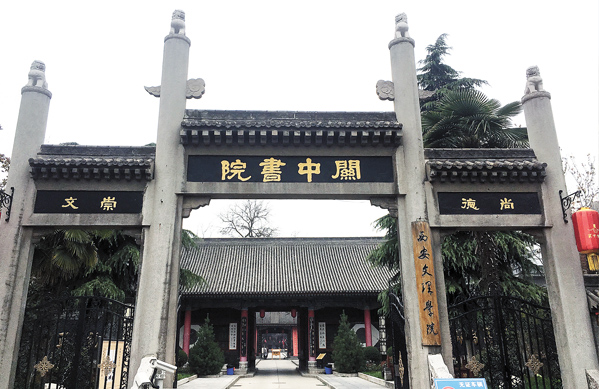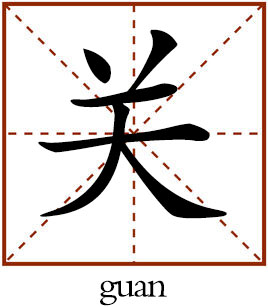The influences of Guan School

The Guangzhong Academy at Hengqu Village in Baoji City, Shaanxi Province (LU HANG/CSST)

Guan means “pass” in Chinese. The concept Guanzhong, literally “among the passes,” refers to the area of central Shaanxi Province, including cities like Xi’an and Xianyang. Surrounded by the Tong Pass (east), San Pass (west), Wu Pass (south) and Xiao Pass (north), Guanzhong has had strategic significance throughout history.
The Guan School of Confucianism that was popular in the Guanzhong area of Shaanxi Province was established by Zhang Zai (1020-77) in the Northern Song Dynasty. Despite the lack of strict master-disciple relationships among the scholars and the current variation in academic thought, most scholars in the Guanzhong Area still respect Zhang Zai as the Master of Guanzhong scholars.
The Four-sentence Doctrine of Zhang Zai shaped the sense of mission among the inheritors of the Guan School. Most of the scholars of the Guan School closely connected their academic work to the fortunes of the nation and the people, dedicating themselves to reforming improper policies and addressing social issues. They viewed themselves both as scholars and bearers of social and historical values, trying to unify their academic and governing roles, while conducting studies and abiding by codes of conduct.
Zhang Zai, for the first time in the history of Chinese philosophy, established the philosophical system of monism of qi (vital energy.) He was also the first philosopher to criticize the Buddhist idealism from the perspective of the relationship between mind and being, which made him the founder of the Daoxue (Learning of the Principle, also known as Lixue) in the Song Dynasty.
Modern philosopher Zhang Dainian (1909-2004) once said that Zhang’s theory had two of the most important characteristics: taking qi (vital energy) as its basis and advocating the Confucian theory of propriety. Although later scholars of the Guan School did little to develop Zhang’s idea of qi, most of them inherited and developed his emphasis on the Confucian system of propriety.
The Guan School of Confucianism made prominent contributions to Chinese theory. It not only played a significant role in the history of Chinese philosophy and academics but also formed a distinctive feature in terms of academic spirits.
Although it had limitations as other regional cultures did, including conservative political ideas, weak consciousness in competition and insufficient innovation, the Guan School greatly influenced the people in Shaanxi Province with its sense of mission, morality, pragmatism, integrity and inclusiveness.
The Guan School inspired self-conscious people. Prominent philosopher Ma Yifu (1883-1967) once said “I deliberately quote here the Four-sentence of Mr. Zhang Hengqu to lecture you on making your life aspirations. I hope you all straighten your backbones and exert yourselves. Only by making life aspirations according to this doctrine, can you be a dignified person.”
Zhang proposes that “The people are all my brothers and all the things are my kinds” and advocates “universal love.” It also encourages innovation, inclusiveness and abandoning bias among different schools of studies are still meaningful to academic studies today.
Zhao Fujie is a professor of philosophy from the Northwest University of Political Science and Law.
For more details of the Four-sentence Doctrine, please see CHINESE PROVERBS> Guan School, http://www.csstoday.com/Item/5214.aspx
